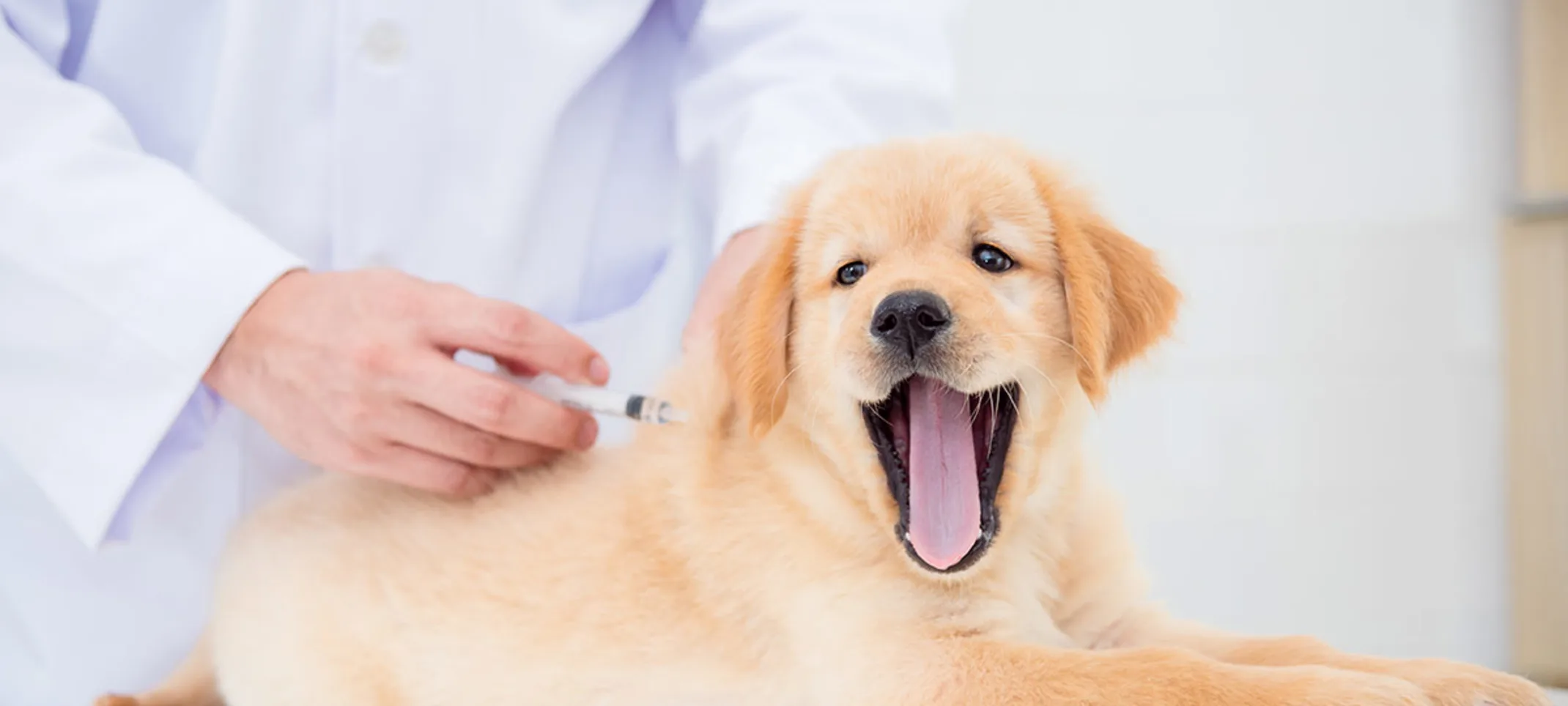Arlington Pet Care Hospital
Vaccinations
Preventative care is an important aspect in maintaining your pet’s health. Proper vaccination is vital in protecting them against harmful diseases.

Arlington Pet Vaccinations
Protecting Pets of the Arlington Community & Beyond
Vaccinations effectively protect both you and your pets from contracting and spreading dangerous diseases. The ASPCA considers vaccinations to be one of the key ways you can protect your pet’s long-term health and improve their quality of life. The dedicated team at Arlington Pet Care Hospital agrees; it is crucial that you keep your pet up to date with their vaccinations in order to protect their health.
Overview
We believe that preventative care is one of the most important aspects of maintaining your pet’s health. There are a variety of diseases that affect animals, so proper vaccination of your pet is vital in protecting them from the many types of illnesses to which they are susceptible to.
Why are vaccinations important?
Vaccinations are vital to the health and protection of your pet, and serve as a preventive measure in combating viral diseases like Parvovirus, Parainfluenza virus, Distemper, Lyme Disease, Panleukopenia, Feline Leukemia Virus, and Rabies.
Recommended Vaccines for Your Pets
The highly trained staff at Arlington Pet Care Hospital always have your pet’s best interests and health in mind when we make medical recommendations. We consider all of your pet’s unique health needs as well as their lifestyle and behavior before making recommendations for a vaccination schedule. We consider all of these factors to make sure that your pets receive exactly what they need in order to stay safe and healthy.
Core Vaccinations
Core vaccinations are those that are considered universal for all pets. These vaccines prevent severe or highly transmissible diseases. Depending on your pet’s species, our Arlington veterinary team will recommend certain core vaccinations.
Core vaccinations for dogs include:
Parvovirus
Distemper
Rabies
Hepatitis
Core vaccinations for cats include:
Calicivirus
Rabies
Herpes virus type I
Panleukopenia
The vaccines listed above help protect your pet, as well as you and others in the community, from these diseases, which are considered either severe or highly transmissible. In addition to the core vaccinations listed above, we may make recommendations for other vaccines which may be beneficial to your pet given certain factors like age, breed, or lifestyle.
When should my pet get vaccinated?
Vaccinations are particularly important for puppies, kittens, and other young animals that have immature immune systems. Veterinary vaccinations generally begin at 6-8 weeks of age and then boostered throughout your pet’s life depending on the vaccine. Our doctors will determine the appropriate vaccination plan for your pet.
How are vaccines administered?
Vaccines help to combat diseases by exposing the pet's immune system to inactive or small amounts of a particular form of bacteria or virus. Vaccines are administered through a subcutaneous injection (under the skin), orally, or intra-nasally, depending on the vaccine.
Vaccinations are accompanied by a consultation and examination with our veterinarians to make certain that your pet's condition is stable enough to receive them. Proper and timely administration is necessary to ensure optimal protection.
Vaccines Are Safe
Before any vaccine is released to the broader market, they undergo rigorous testing to ensure that it is safe to be administered. Vaccines for pets are no different than those for humans, and they must go through the same process. Because of the development of these vaccines, certain dangerous diseases like distemper exist at much lower levels than during times when the vaccine was not available. With more pets protected, diseases like distemper are spread around less frequently. By vaccinating your pet, you’re not only protecting them: you’re protecting yourself, your family, and other pets and families throughout the Arlington community.
As with any medical treatment, there is a small possibility that your pet may react to a vaccination. Common reactions include soreness or swelling at the injection site. Less frequently, your pet may react with a fever or inflammation. Before we make any recommendations as to a vaccination regimen, we take your pet’s entire health picture into consideration, as we do with all of our medical recommendations. Your pet’s health will always be our number one priority.
If you have any questions about vaccines and what they can do for your pet’s health, please call us at (817) 587-8874 or contact us online. We’ll be happy to provide answers!
